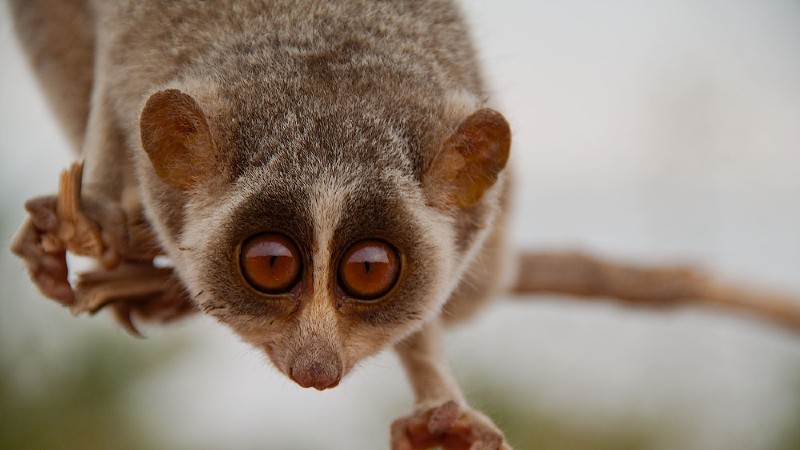Folk magic and traditional healing remedies threaten India’s slender loris population

Content warning: contains references to animal injuries which some readers may find distressing
Folk magic and traditional healing remedies are fuelling the illegal trade in the threatened slender loris in India, according to research carried out by a team led by independent researcher Smitha D Gnanaolivu in collaboration with Oxford Brookes University and the University of Mysore, India. The research was published today, 19 May 2022, in the journal People and Nature.
Professor Anna Nekaris, who is head of the Nocturnal Primate Research Group at Oxford Brookes said: “We decided to do this research because the Indian team had reports of many stories of how illegally traded animals are used in local rituals yet this was not considered a conservation threat. The injuries we saw were horrific - over 85% of the rescued slender lorises we documented had been used for folk magic rituals including performing magical processes on them to cause human enemies harm. We interviewed 293 people across three Indian states inhabited by slender lorises and found that astrologers regularly use live animals for fortune telling or for warding off evil. Parts of their body are also used to make traditional folk medicines, to develop potions to bring people harm or to hypnotise people”
Slender lorises are nocturnal primates that live along forest edges and plantations close to human settlements and are increasingly found in urban and suburban areas as their habitat is eroded by development. They often live outside protected areas, which makes it easier for them to be caught and traded. The extent of the illegal trade in slender lorises is unknown; most trade is inside countries either online or through newspaper adverts. No official records are kept making it impossible to track the volume of animals sold. In India, where the hunting, sale, transfer, or possession of slender lorises or their parts (dead or alive) without prior permission from the Government is illegal, researchers found potential buyers were most often based in Maharashtra, Tamil Nadu and Karnataka states.
Professor Nekaris said: “I’ve studied these beautiful rare primates for over 30 years. This research shows that we need to work with the community to understand the reasons for these rituals and to counter this trade sensitively. We also need to understand more about where the slender lorises are being caught and to understand their ecology better. Through understanding these mindsets, we can involve the local community in conserving them.”
The team of researchers was led by independent researcher Smitha D Gnanaolivu and consisted of illegal wildlife trade expert Sharath Babu, wildlife veterinary doctor Dr Roopa Satish in collaboration with Professor Anna Nekaris from Oxford Brookes University and Professor Mewa Singh, from the University of Mysore, India.
